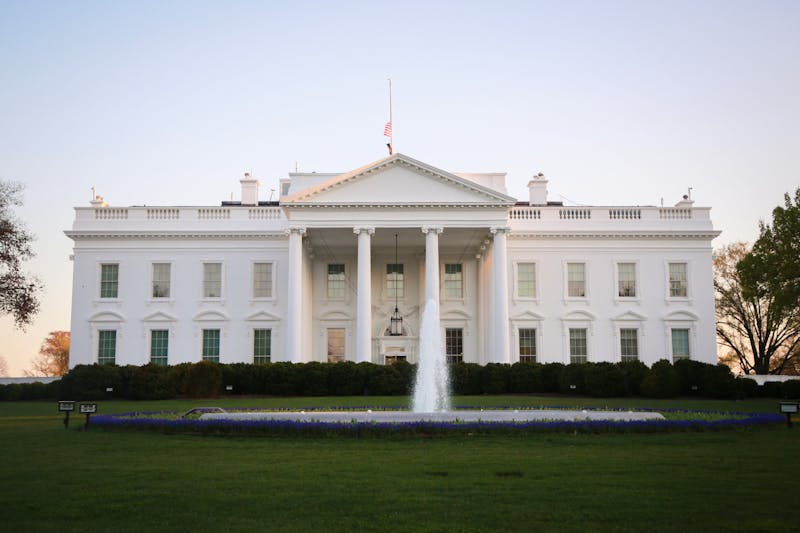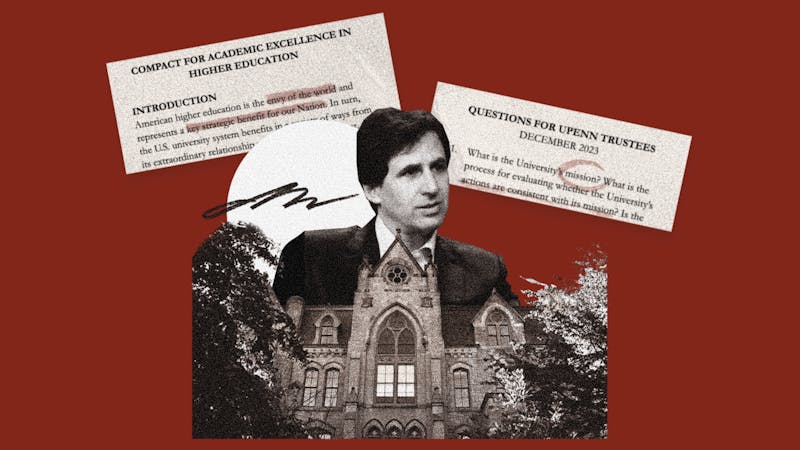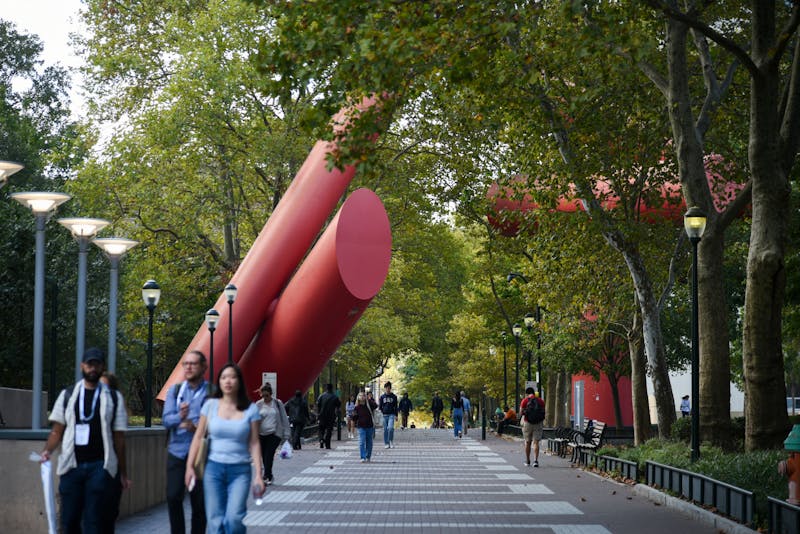This week, the Penn College Republicans are hosting Terrorism Awareness Week on campus.
Penn is one of hundreds of campuses across the nation that is playing host to Islamo-Fascism Awareness Week, as it is called everywhere else, and its purpose, as defined by the conservative David Horowitz Freedom Center's Web site for the project (www.terrorismawareness.org) is as follows: "The purpose of this protest is as simple as it is crucial: to confront the two Big Lies of the political left: that George Bush created the war on terror and that Global Warming is a greater danger to Americans than the terrorist threat."
As has been the right-wing modus operandi over the past six years, terrorism - an issue that affects all of us, regardless of our background - is being turned into a partisan issue that assails the motives of the second-largest religion in the world and the patriotism of other Americans.
Penn students are well aware of the threat of terrorism. Any dialogue on the topic, though , should be a fair and balanced debate about learning from the failures of the past, not a one-sided discussion about repeating the same errors again.
Despite renaming the events of this week, the underlying tone of Terrorism Awareness Week makes it seem that the goal is to tie Islam to terrorism. A visit to the project's Web site makes it clear that the spotlight is focused on the most negative aspects of Islam.
While there is no doubt that Muslim extremists were behind the 9/11 terrorist attacks and are behind the violence in Iraq, this does not mean Islam is practiced entirely by fundamentalists.
Nor is it a majority view among Americans; in a poll commissioned last year by The Washington Post, 33 percent of Americans believe Islam advocates violence towards non-Muslims. This is an increase from 14 percent in 2002, which happens when a voice is given to someone like Daniel Pipes, one of the panelists from Monday's event.
Pipes has written that he believes all Muslims are suspect to violent tendencies, that 10-15 percent of Muslims are "militant," and in response to the Council on American-Islamic Relations deeming him the "nation's leading Islamophobe," he accused the organization of wanting to replace the Constitution with the Quran.
This raises questions about those chosen to speak this week about educating college students in America about terrorism. The keynote speaker at Penn was former Sen. Rick Santorum, who has unapologetically continued to use the term "Islamic fascism" when discussing terrorism - even after the State Department stopped using the term because it offended our few remaining allies in the Middle East.
Ann Coulter, who claims Muslims have a "predilection for violence," is speaking at Tulane University and USC. Conservative radio host Michael Medved - who has no foreign-affairs background, but has opined that Islam has a "special violence problem" - will speak at the University of Washington. Speakers like these are out of the mainstream at Penn and the rest of the country and make it difficult to have a proper discussion about terrorism.
Engaging in an honest dialogue across party lines has been done before. The bipartisan 9/11 Commission was able to come together after divisive testimony to recommend numerous measures that would better protect America.
Why couldn't the same have been done at Penn? Experts such as former Secretary of State James Baker (last year's Commencement keynote speaker) and former counterterrorism czar (and Penn alumnus) Richard Clarke would lend much more credibility to a debate about terrorism.
Instead, Penn students heard from someone so far outside the mainstream that he barely earned 20 percent of the campus vote last year (Santorum) and someone whose views are so extreme that his nomination to the U.S. Institute of Peace was blocked by the Senate (Pipes).
Terrorism is one of the most important issues facing the world today, but the Penn community would have been better served by learning about the topic from a more balanced slate of speakers.
Asuka Nakamura is a Wharton Senior from White Plains, NY. He blogs for the Penn Democrats at their web site penndems.org.
The Daily Pennsylvanian is an independent, student-run newspaper. Please consider making a donation to support the coverage that shapes the University. Your generosity ensures a future of strong journalism at Penn.
DonatePlease note All comments are eligible for publication in The Daily Pennsylvanian.







